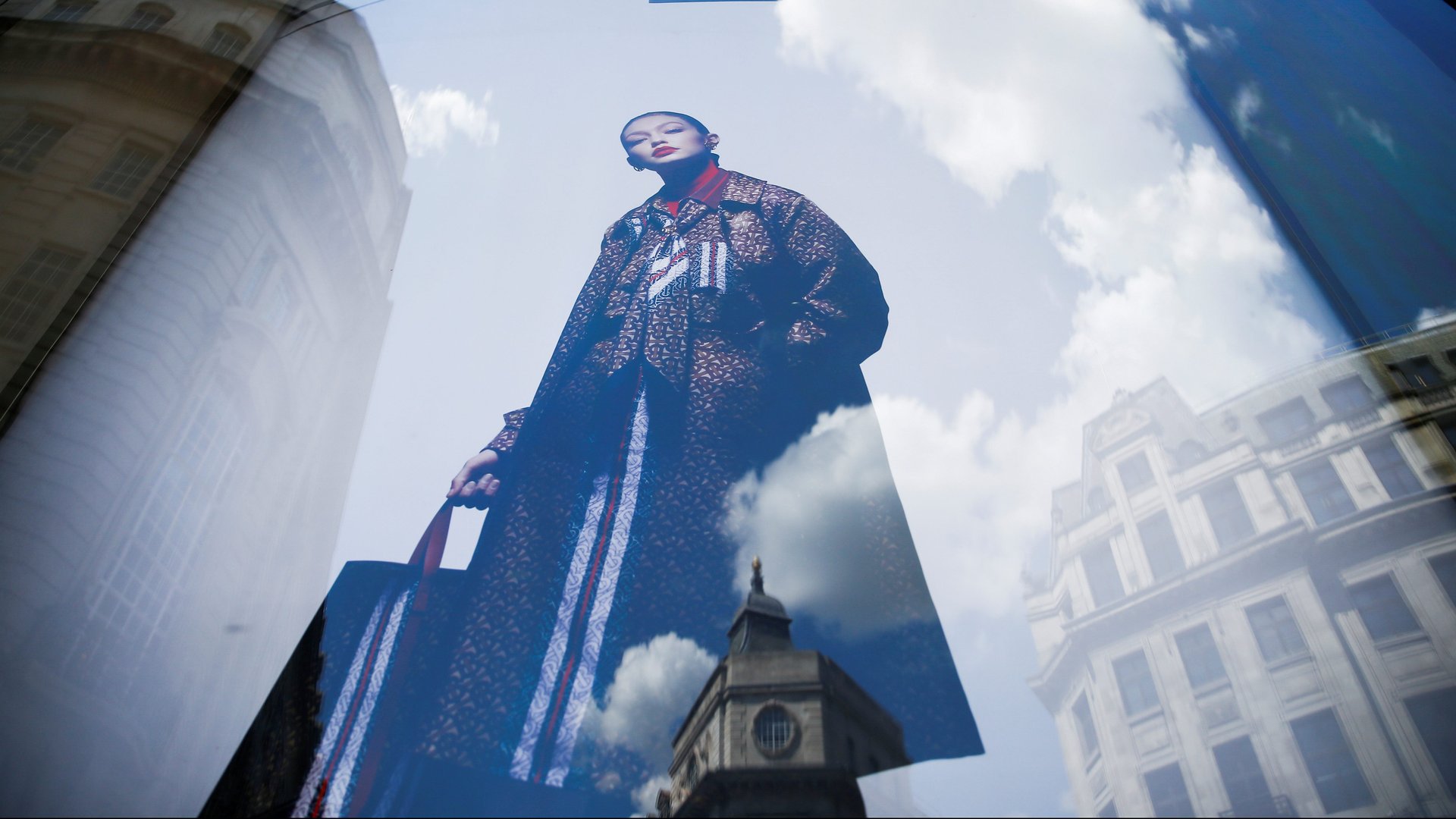The UK clothing industry wants the government to focus on fashion as much as on fishing
Amid the upheavals of Brexit, the UK government has not forgotten the country’s seafood industry. In the debates over how Britain should handle its departure from the EU, fishing morphed into a symbol of Britain’s potential independence. In January, the government pledged up to £23 million ($31.7 million) in support of fishing businesses, aiming the funds toward those whose exports suffered under the import regulations imposed by the EU following Brexit.


Amid the upheavals of Brexit, the UK government has not forgotten the country’s seafood industry. In the debates over how Britain should handle its departure from the EU, fishing morphed into a symbol of Britain’s potential independence. In January, the government pledged up to £23 million ($31.7 million) in support of fishing businesses, aiming the funds toward those whose exports suffered under the import regulations imposed by the EU following Brexit.
But the focus on a sector that employs about 12,000 workers and contributes about £446 million to the economy annually has also become a point of criticism against the UK government, particularly as larger industries struggle with the fallout from Britain leaving the EU. Fashion, which fed £35 billion (pdf) into the UK economy in 2019 and employed 890,000 workers, says it deserves at least as much attention and assistance.
In a recent open letter (pdf) to the British government, Fashion Roundtable, which describes itself as an industry think-tank, warned that UK fashion “is at real risk of decimation” from Brexit. “Yet we have been disregarded in this deal and our concerns overlooked in current policy decisions,” it said.
Fishing, in comparison, “contributes as much to the UK economy as East London does from the fashion and textile industry, employing the same workforce as Topshop alone,” it noted. The group called for “parity in support” to preserve fashion’s jobs and keep the sector healthy.
Fashion companies and retailers are running up against costly obstacles in the wake of Brexit, including high import duties and onerous paperwork. A European shopper who buys from a British retailer could be hit with taxes and fees reaching 30% of the product price to import the item, according to Fashion Roundtable.
Helen Brocklebank, CEO of Walpole, a trade group representing the UK luxury sector, said in an email that one of the group’s members reported selling a £2,900 item to a customer in Greece, only to have Greek customs hit it with a duty equivalent to £1,000. The company paid the fee itself and then suspended sales in the EU. (The new duties are also causing major headaches with returns.)
Another member put £5 million into their 2022 budget just to cover the complex rules-of-origin paperwork now necessary to move goods between the UK and EU.
The costs can add up given how much business UK companies tend to do in the EU. Walpole estimates about 42% of Britain’s high-end exports go to the EU, for example. Footwear maker Tricker’s told Reuters its new costs for doing business in the EU could reach £100,000 a year. Designer Paul Smith told the Financial Times (paywall) he expects Brexit-related changes will cost his company “multiple millions” annually.
On top of these issues, London could lose some of its allure as a shopping destination for high-spending tourists. The British government has done away with the rebate that refunded tourists the value-added tax (VAT) on goods costing more than £135. The change means travelers might opt to make their luxury purchases in cities such as Paris or Milan instead.
“The deal done with the EU has left a gaping hole where promised free movement for goods and services for all creatives, including the fashion and textiles sector, should be,” Fashion Roundtable said in its letter.